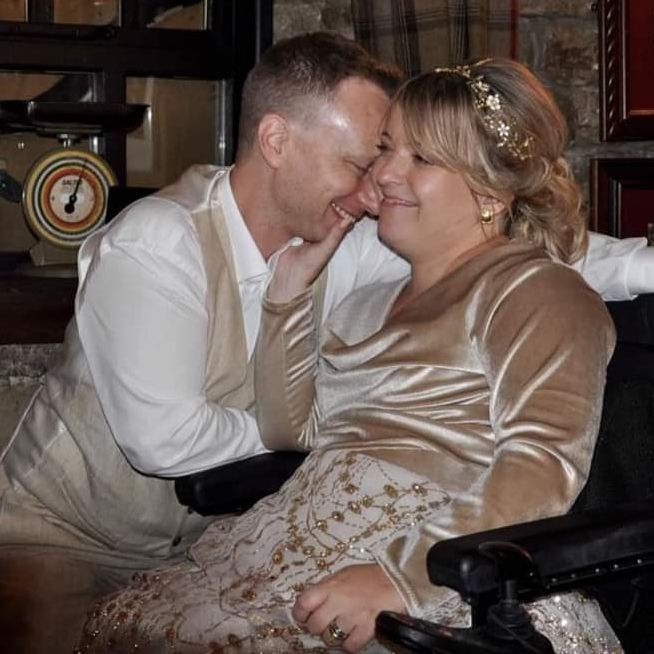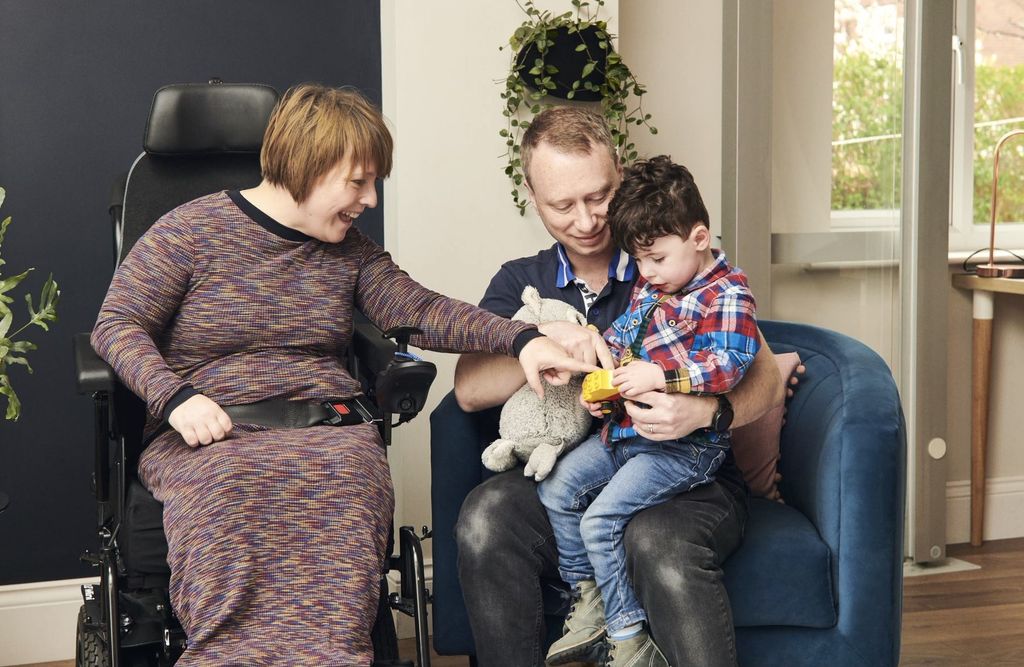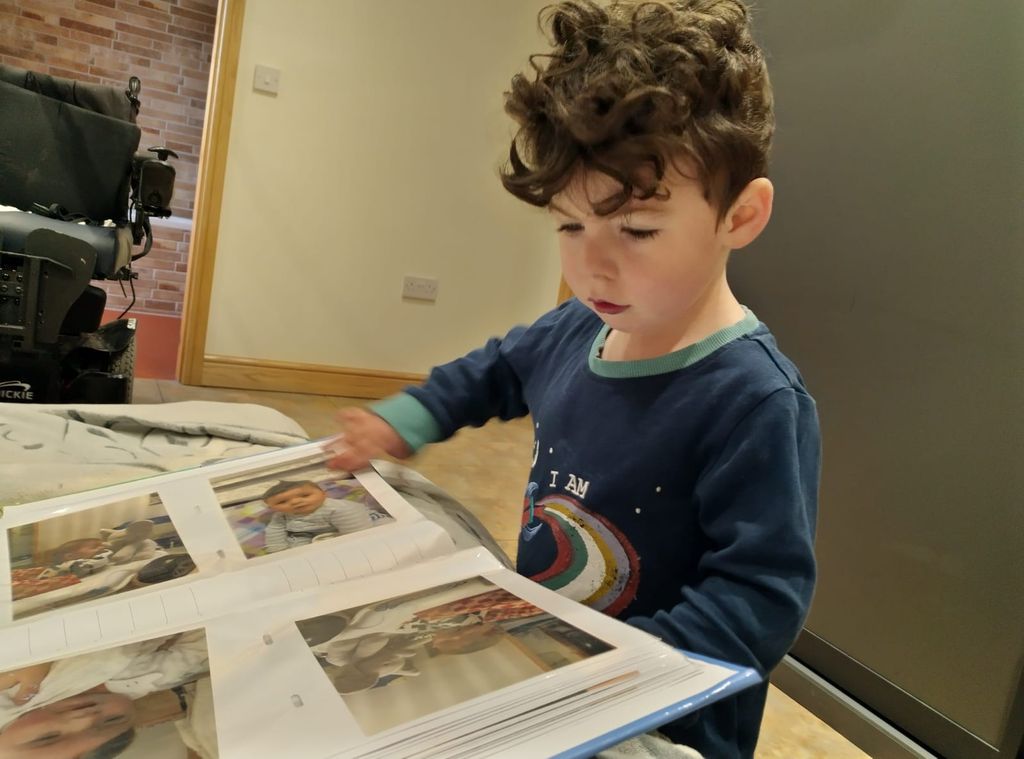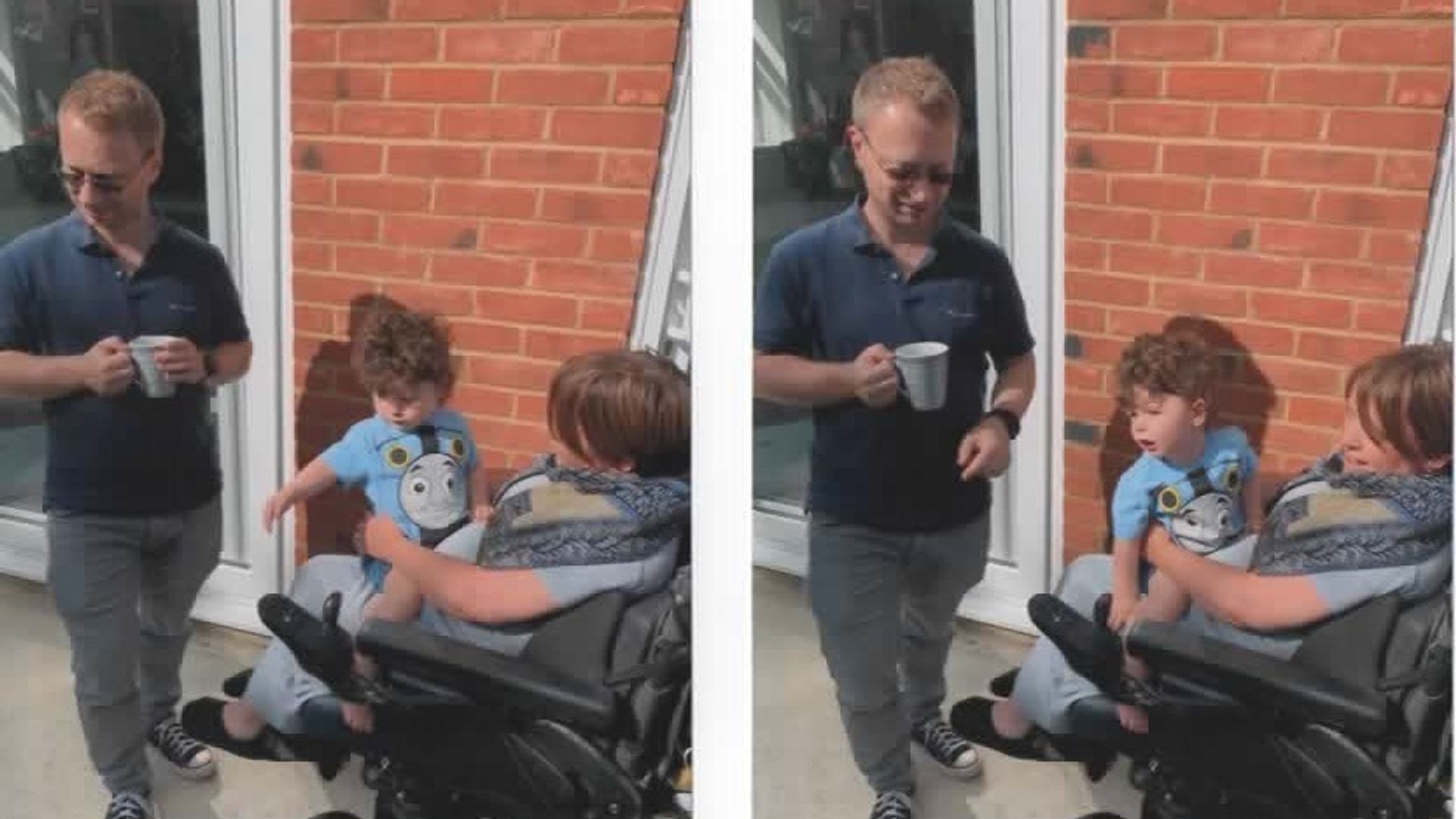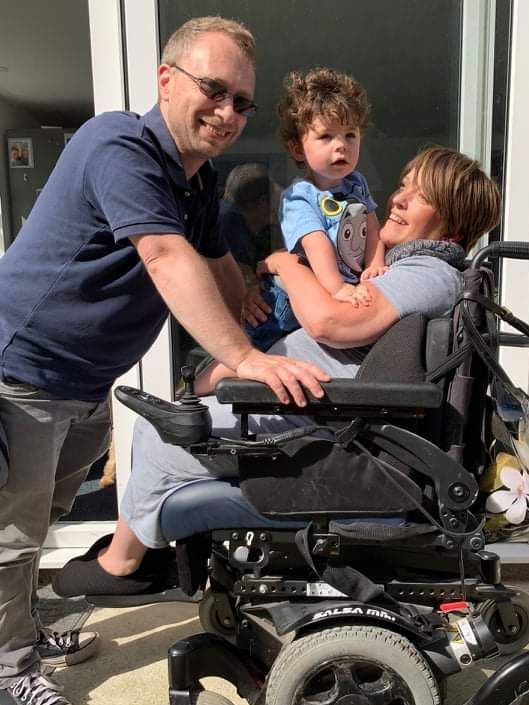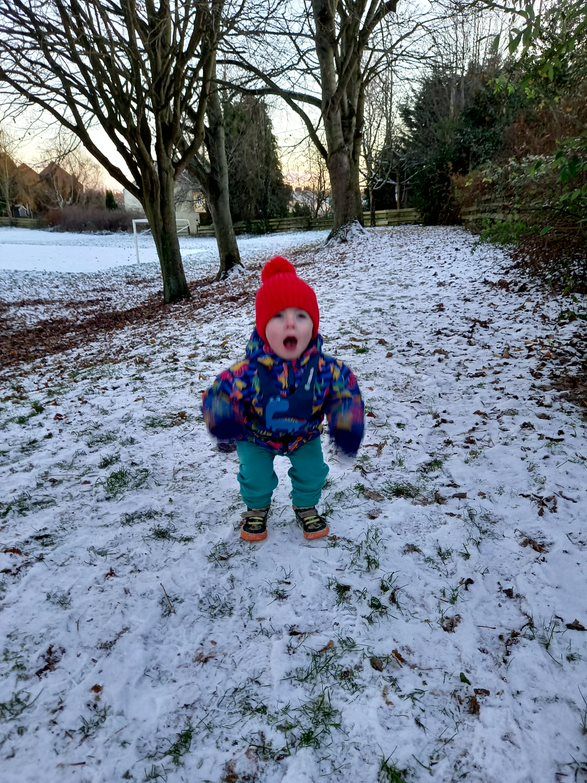Did you know that right now almost 2000 children in England are waiting to be adopted, and many of those children fall into the ‘harder to place’ categories?
Children over the age of five wait 16 months longer to be adopted from care, children with a disability wait nine months longer, and sibling groups wait seven months longer than that – it’s truly heartbreaking.
Now, a new campaign from ‘You Can Adopt’ (the national group of regional and voluntary adoption agencies) is highlighting the different shapes and sizes families come in, and the ways adoptive parents can find support throughout the adoption journey.
Raising awareness of the campaign is one inspirational mum, Ash, from Durham, who along with her husband of four years, Graham, adopted their son Bill in September 2021.
Ash, 42, a disability training consultant and Graham, 40, a computer programmer, are an inter-abled Couple – Ash has cerebral palsy and uses a wheelchair. Their four-year-old son Bill has a rare chromosome condition called Jansen de Vries Syndrome, which is a neurodevelopmental disorder.
Ash told us that many families thought about adopting Bill before they chose to. “Thirty-one people looked at this little boy, loved him and were scared because of the unknown around his disability,” she says.
Below, Ash opens up to HELLO! about her family’s positive adoption journey and reveals how her disability hasn’t held her back from adoption or parenting. On the contrary, Ash says their son Bill is a wonderful, empathetic and funny little boy who is exceeding expectations with his development.
Deciding to adopt
“My husband Graham and I first spoke about adopting when we got married four years ago. We discussed having children ourselves, but having cerebral palsy, I just felt that birth would be difficult for me, and it would take me ages to recover. I said to him, ‘There are loads of children out there that actually need a home.’
“To start with, I was scared to adopt because no matter what you do as a disabled person, you expect to face discrimination. Yes, because I wanted to look after a child and have a disability, I had to jump through extra hoops with how I could care for Bill – and quite rightly – but I was never discriminated against.
“We applied to adopt with Adoption Matters. You could tell that the staff had had equality training, which I had previously done too, as they went through the process with us beautifully.”
MORE: 5 royal teddy bears to gift your little prince or princess
Adopting a child with a disability
“As part of the adoption process, we had to fill out a form with all these questions about age, disability, and ethnicity, and we ticked that we weren’t bothered about anything. To me, it’s nurture not nature. The child didn’t need to look like us, but what we needed was a child that would fit with us, as we are an inter-abled couple.
“As soon as we’d ticked that we’d take a disabled child, we got an influx of people who were interested, of course we did.
“The adoption agency always finds it more difficult to place a child with a disability because a lot of able-bodied people are frightened of disability.
“I totally understand that, but throughout all my career I’ve worked around disability, so I’ve used my disability as an ‘ability’ to help other people. I’ve never been afraid of the unknown or disability, so it worked for us, and it worked for Bill.”
“We found the adoption process to be superb. We had a year’s training through lockdown, which is what you do before you get approved at a panel. You get approved twice: approved to adopt and then you go and look for a child.
“Once you find a child or children, you then go to the matching panel and then they agree that they are the right child for you.
“We had the same adoption social worker throughout the whole process. She spoke to my medical consultants who told her how I deal with my disability, how I don’t let it get in the way.”
Meeting their son Bill
“I remember seeing Bill’s picture on his profile and I fell in love with his little face. Then I read that 31 people had looked at him and had said no because of his condition.
“Bill has a rare chromosome condition called Jansen de Vries Syndrome. Because it’s so rare to the medical professionals, nobody knew what would become of him.
“Jansen de Vries Syndrome can be different in any child, but for Bill, he has gastrointestinal issues, a sensory impairment, autistic tendencies, and he has small features. Other than that, he’s just a gorgeous child.”
“I remember having a discussion with Kate, our social worker, around the fact I had looked into his condition. I told her that I had worked with some children that had similar conditions to Bill’s. Although Bill’s condition is rare, it still had traits of other conditions.
“I knew that I could build a network of talented people, friends that I had worked with and grown up with who could give Bill the attention he needed, as well as me having the knowledge that I had.
“I also knew that I could instill in this child that he is the coolest little boy with this syndrome.
“I have been a disability training consultant for seven years and I remember one of the feedback forms saying you make disability cool. This was something I wanted to teach Bill, that it didn’t matter if he had a condition and that he could achieve anything he wanted to.
“Kate agreed that Bill would be the perfect match for us as parents.”
MORE: I’m a Parenting Coach: Here’s 8 ut costs in the summer holidays
Bill joining the family
“When we met Bill, he lived in Southend with his foster carer. We initially spent a fortnight there with him and his foster mum, then when it was time for him to live with us, we drove him back to our house and the foster carer followed us on the train.
“I remember him walking in, meeting the dogs and getting excited picking up his toys. He was cuddly but he couldn’t speak to us then because he was only two. It’s been much better now that we’ve seen his personality more; he’s the funniest little boy.
“Bill has a 20 second delay, which means that when he talks to us, it takes him a little while to process what you’re saying to him.
“At first it was thought that he might develop learning difficulties, but a friend of mine, Rachel, who runs a Tiny Tweeties class, has helped him with his speech. She came and did private sessions with Bill.
“I realised that everything was too fast for Bill, and because my friend went at his speed, we were able to see how clever he actually was. We slowed his world down a bit.
“The music she used to enhance his speech reduced his anxieties, helped him explore the world around him, build his imagination and helped with his sensory needs.”
“When Bill came to us, he was going to go to a special school, and now he’s going to go to the mainstream village school in September. Now he talks to us, he can spell out his name phonetically and he knows the alphabet. He does everything that other four-year-olds do.
“We were first time parents when Bill came to us. All we do is use the tools that the adoption agency gave us, and because we’ve never had children before, we use them to the letter.
“We feel really blessed that we were given that training. When you have your own child, you’re not given training; you’ve got this baby and you’ve got to fumble around and learn. It’s not an easy job, even with training.”
Life at home with Bill
“As a parent, I do things differently to an able-bodied mum, however, the outcome is just the same.
“When Bill couldn’t dress himself, I used to have to pick him up and dress him on my knee – but he was still dressed, it’s just I couldn’t get on the floor and dress him like every other parent. Children don’t discriminate; he thought that was the most amazing thing.
“You get a lot of support during the adoption process, and also from a health visitor. I remember the health visitor coming to the house and being so frightened – I said to Graham, ‘She’ll either think what I do is wonderful or terrible.’
“So when she asked me to take off Bill’s clothes and put him on the scales, I did that, and then Graham had to take him into the other room and change his nappy. She said to me: ‘That’s the most amazing thing that I’ve ever seen’. I was like, ‘Really?’ and she said, ‘Yeah’.
She said: ‘Do you know what’s the most amazing thing? He’s two and a half and most children that age won’t sit still and want to be down in five minutes. It takes you 20 minutes longer to do anything with him and he accepts that.’ She said I could teach other abled-bodied parents a thing or two!
“I think it’s a good thing for Bill. I don’t see that as a negative thing.”
“Able-bodied people reading this probably think, ‘Oh my god, that’s like a car crash waiting to happen,’ but do you know what, it works absolutely beautifully. Because I’ve lived with a disability, I think it teaches Bill that you can do whatever you want to do.
“He thinks that my wheelchair is the coolest thing on the planet. When I take him to the supermarket and he sits on my knee, he looks at other people and is like, ‘Na na, you’ve got to walk and look at me!’ He’s just grown up to be such a perfect little boy.
“There’s always so much negativity around adoption but we have never faced it. People think that adoption might spoil your family and rock the boat where family members are concerned, but the adoption agency taught us things like having a support network is really important.”
Parenting a disabled child
“Bill has enriched our lives a million times over. He’s so funny – he plays hide and seek with our two dogs – and he also understands that I’ve got a disability. I remember the first time I dressed him and he had language, he said, ‘Good girl mummy’.
“There’s a lady down the street who wasn’t born disabled but is disabled now and has just gone into a wheelchair. He said to me, ‘One day mummy, she’ll be as good as you in a wheelchair, she’s just learning, isn’t she?’
“He’s just got an empathy that I don’t think you would have if he wasn’t with a disabled person.”
“I don’t find parenting him difficult at all. We chose our support network to know who was best if I needed to go to a hospital appointment because I don’t think he needs to see things like that.
“Everything Bill has achieved is incredible. When he came to us, he couldn’t go on public transport because of his autistic tendencies, and on Mother’s Day we taught him to get on the bus. He high fived the driver! Those things are tiny to anyone else but for Bill, they are big things.
“Still being linked with the adoption agency means I can contact the social worker and celebrate those things, because nobody else would understand how difficult that was for Bill.”
Bill’s birth parents
“We still have contact with Bill’s foster mum, we choose to do that, and we write to who we call ‘tummy mummy’, his birth mum.
“We keep his birth parents’ letters so we can read them back to him when he’s older, and explain to him that the reason he couldn’t stay with his mum and dad was because they had learning difficulties.
“When we first got Bill, we wrote a letter to his mum and dad telling them about everything he’d achieved. Bill’s social worker sent a message back from his birth mum which said that she’ll keep the pictures I sent in her purse. I thought that was the most lovely thing.”
Ash’s message to others
“If anyone is reading this interview and thinking about adopting a disabled child but is worried that they can’t do it, I hope it helps them think that they can. If someone believes in you the way that Adoption Matters believed in us, you can do anything you want.
“If you do want to adopt a disabled child, you need to be patient about the length of time it will take them to do something, but I would never say that it’s been hard to parent Bill. It’s more of a reward when he achieves something.
“To those 31 people who looked at him… if you’re going to look at a disabled child again, my message is to have a go at it, because Bill is delightful.”
You Can Adopt has launched a new drive to find resilient parents for the children waiting the longest for permanent homes and showcase the support available for them. For more information, visit youcanadopt.co.uk.

